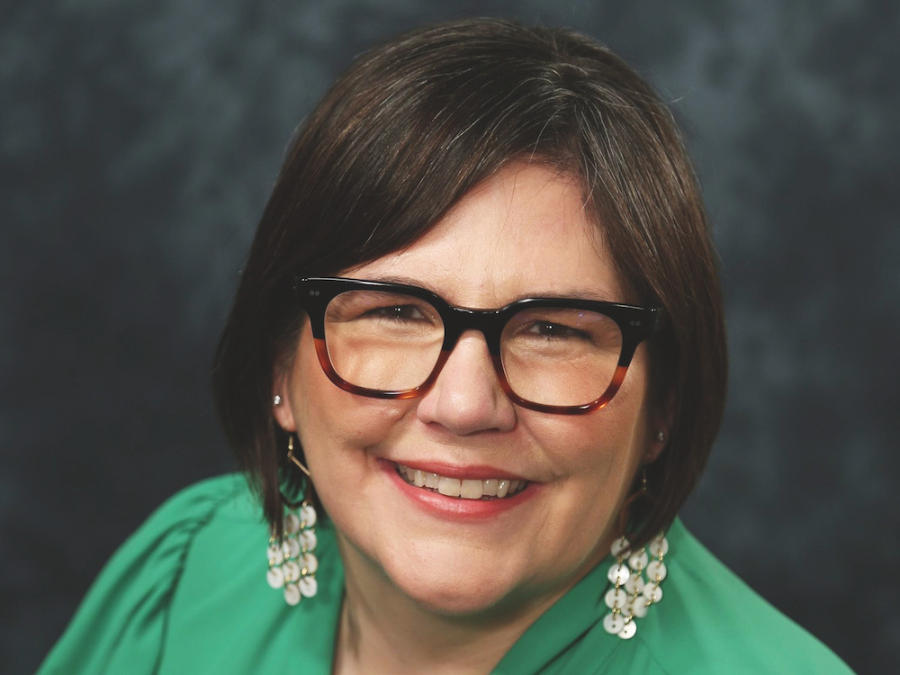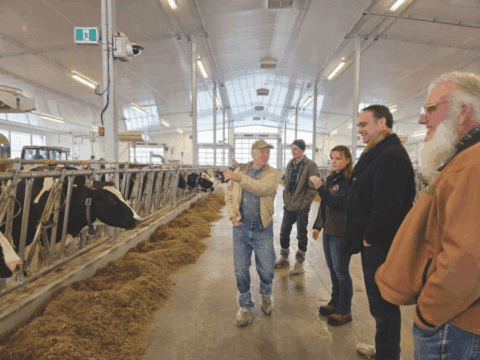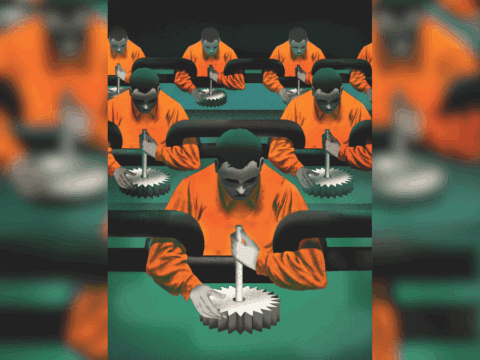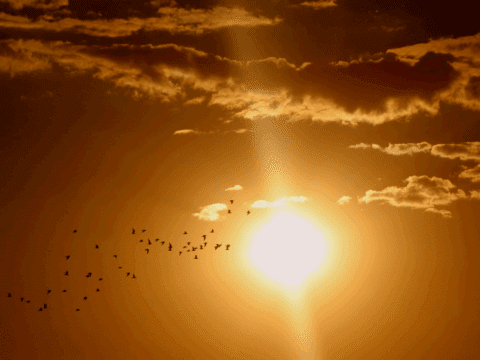Rt. Rev. Carmen Lansdowne is the 44th moderator of The United Church of Canada. She is the first Indigenous woman to serve as the denomination’s spiritual leader and only the second Indigenous person to do so. After her 2022 election, she named reconciliation as a top priority. As her tenure comes to a close, Broadview spoke with her about the Indigenous Church, the ups and downs of her role and how far the denomination still has to go to welcome all. This fall, Lansdowne will begin working at Emmanuel College in Toronto as an assistant professor of United Church studies, directing the school’s master of divinity program and teaching courses related to the denomination.
On moving from a mindset of “all are welcome here” to “this was designed with you in mind”:
You may unsubscribe from any of our newsletters at any time.
We continue to have to really rumble with what it means to be an intercultural church and how we engage with people from different backgrounds in a way that is respectful. I don’t think we do that super well in the United Church. There are still a lot of microaggressions that happen against ministry personnel who are racialized.
Punctuality and silence in worship are two areas where I’ve heard little murmurs across the country — “Maybe we could have a class to teach them how to show up to worship on time and to be silent” — not realizing that for most of the rest of the world, worship is actually a lot more fluid and social than how we experience it. We still have a bit of a “come and be like us” attitude.
On challenges encountered in the role:
The biggest challenge is that we haven’t figured out how to organize in the 21st century, and I think that’s true for Canadians in general — this is not a criticism of the church.
The general secretary and I get a lot of letters requesting us to take action on behalf of the church and advocate to the government. We will never have the resources to counter some of the lobbying efforts that happen on behalf of bigger organizations or corporations. And so I think that’s a challenge to democracy more generally. The way the government wants to hear from people has shifted, and a letter from the moderator of The United Church of Canada doesn’t have the same impact it once had. Of the many, many official letters I’ve written over the past three years, I’ve never received a response from the prime minister’s office.
Also, we stopped doing printed Infopacs [about the church’s work] because so many of them ended up in recycling bins without being opened. Now the only way for the church to deliver information is through digital means, but then we’re all constantly assaulted with so much digital information. And I think one of the things we maybe didn’t anticipate with the restructuring of the church in 2019 was the loss of word-of-mouth communication that happened at Presbyteries, even though Presbyteries were not always well attended or functional.
On her hopes for a fractured Indigenous Church:
That’s complicated. I think the first thing is that although folks are angry with the general secretary for the action he took last summer to disband the National Indigenous Council, the General Council Executive, after extensive discussions with him, has taken on ownership of that decision, and we have his back.
The conflicts that came up in the Indigenous Church that resulted in that decision were entirely predictable because of the way that Indigenous people exist in this country — they’re always in a fishbowl with very limited access to power. The fighting that happens within Indigenous communities is a direct result of colonization and the way in which the Indian Act governs every aspect of our lives.
When the comprehensive review happened [to prepare for the denomination’s 2019 restructuring], there was inadequate consultation with Indigenous Peoples. In fact, the final proposal was never presented to the Indigenous Church.
I think there was also an expectation that once the remit passed last year giving the Indigenous Church autonomy, the Indigenous Church would be ready to say, “This is what we want.” And even if the National Indigenous Council hadn’t gotten to a place that was so frustrated, they wouldn’t have been ready to do that.
My hope for the Indigenous Church is that they find some stability. We’ve had some key leadership changes in terms of staffing, too, and so I hope as that settles and they look toward the next National Indigenous Spiritual Gathering, they can do some work to say, “How do we want to structure ourselves?” I hope they’re able to do that in a way that is life-giving and allows them to feel the support of the rest of the church.
On her forthcoming book, Wearing a Broken Indigene Heart on the Sleeve of Christian Mission:
The book is about the ways that Christian mission could be more life-giving, justice-centred and inclusive if we approach it from traditional Indigenous ways of being.
On advice for the denomination’s next moderator:
I would say I put too much pressure on myself to do something. I had big, audacious dreams, and that turned into the Flourishing Project [a national initiative to help churches and communities thrive] and then to (Re)Generate [a leadership program for ministers] and the book club, which was awesome, by the way. I would continue to do it in a heartbeat, but I’ll give the next moderator space to figure it out.
It used to be that the moderator’s office would work with the Presbyteries to organize immersion visits to the Conferences, and we didn’t do that with the Regions this time, in part just because everybody felt so crispy after the first two years of COVID that nobody wanted to try and figure out how to host me for a two-week visit to each province. And so I had a lot of freedom, but I also felt a little unmoored in that.
I think the intent for the next moderator is to partner with the national staff to have more of a co-ordinated work plan.
More on Broadview:
- United Church moderators reflect on the past, present and future
- Carmen Lansdowne is now the 1st Indigenous woman to lead a Canadian church
- 3 things changing at this year’s General Council
On the United Church’s next steps:
The most important question for the church is for us to continue to rumble with our call and vision. What does it mean to be a church of deep spirituality, bold discipleship and daring justice? And now, without Presbyteries, there’s a shift more toward congregationalism, for good or for ill. I think that the call and vision can actually be the thing that unites us.
This interview has been condensed and edited for length and clarity.
***
This article first appeared in Broadview’s September/October 2025 issue with the title “’My Hope Is…They Find Some Stability’.”
Emma Prestwich is Broadview’s digital editor.














“The most important question for the church is for us to continue to rumble with our call and vision. What does it mean to be a church of deep spirituality, bold discipleship and daring justice?” WHAT DOES THAT MEAN ?? with its fine sounding words ??? WHAT IS OUR CALL & VISION- the churches that I visited as Pulpit Supply certainly didn’t know the answer to that & when I made a change from the traditional in one, I was fired now that’s strong definitive action.
I go to church to hear the music and sermons that have been carefully prepared. If people are milling around being fluid and social I can’t hear properly.